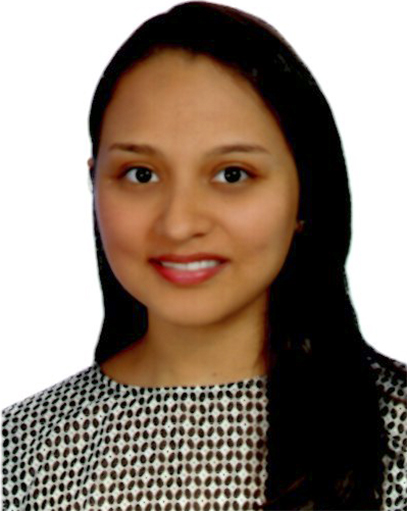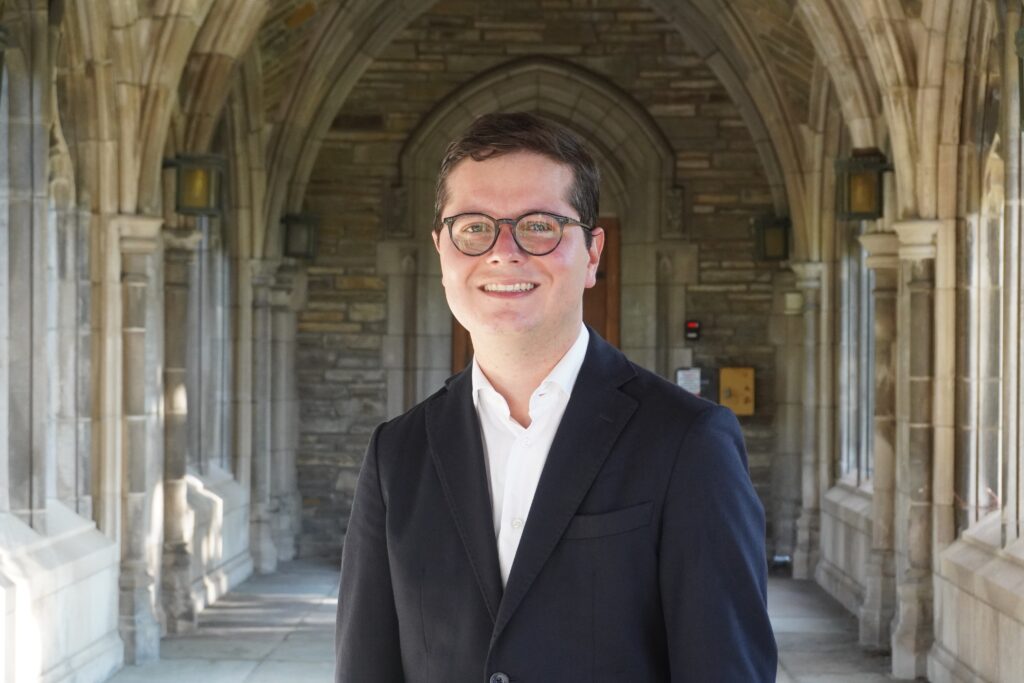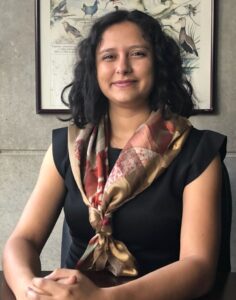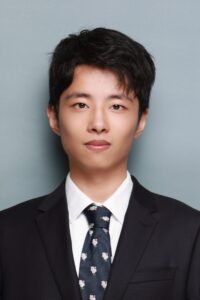This website uses cookies
We use cookies to ensure that we give you the best experience on our website. If you continue to use this site we will assume that you are happy with it.

Maria Alejandra joined the JSD program at Cornell Law School in 2021. Maria is from Colombia and specializes in human rights and public international law. She obtained her LL.M with Distinction at the London School of Economics and Political Science (LSE) in 2020. She also holds an LLB and a BA in International Relations from Universidad del Norte (Colombia).
Before joining Cornell, Maria was an associate and practiced law at a law firm for three years. She held different research positions in which she conducted projects in human rights, transitional justice, peace, and post-conflict studies. Maria received the Young Researcher Fellowship from the Colombian Ministry of Science, Technology, and Innovation in 2017. During this fellowship, she explored the role of the land restitution jurisdiction on the evolution of property rights of internally displaced persons (IDPs) in Colombia. She is currently a member of a tight-knit foundation where she provides legal counsel to communities in northern rural Colombia.
Her current research explores the relationship between case law, human rights, and climate change. She seeks to unfold the hidden effects of climate litigation in the plight of climate change, especially how a human rights-based approach to climate litigation has reshaped climate NGOs’ behavior and their impact on the international arena.
Cornell Law School Graduate Fellowship (2021)
COLFUTURO’s Scholarship-Loan Program Beneficiary to study the LLM at the LSE (2019)
Silver Medal for Academic Excellence (BA in International Relations) (September 2016)
Silver Medal for Academic Excellence (LLB) Universidad del Norte (March 2016)
Latin America Scholarships: Undergraduate Students – Santander Universities Award. Exchange Program at Tecnologico de Monterrey, campus Monterrey, Mexico (Fall 2015)
First National Competition of Academic Writings in Honor of Professor Luis Alberto Gomez Araujo. First Place (May 2015)
International Law & Climate Change
International Human Rights Law
Public International Law
Transitional Justice
Peace & Conflict Studies

Mayar Darawsha is a J.S.D. candidate from Arrabah City, Israel. Before attending Cornell, Mayar obtained her LL.B. degree from Tel-Aviv University. During her LL.B. she worked as a teaching assistant with Professor Eliav Lieblich in Public International Law course for 4 consecutive terms. Mayar also worked as a corporate lawyer in Israel for two years at Herzog Fox & Ne’eman and Amit Pollak Matalon law firms. Mayar also served as an editor in the Cornell International Law Journal (ILJ). Mayar is fluent in Arabic, Hebrew, and English.
Mayar obtained two CALI Awards in Public International Law and Political Obligation courses.
Laws of Armed Conflict and the Use of Force
International Human Rights Law
Political Theory
Muna Ndulo (Chair)
Jens David Ohlin
Email: md968@cornell.edu
Phone: (607) 262-4515

Santiago García Jaramillo is a J.S.D. candidate from Colombia. His research focuses on the intersection between Moral-Political Philosophy and Constitutional Theory. Santiago obtained his LL.M. from Yale University (2022); a LL.B. from Pontificia Universidad Javeriana (Colombia, 2013), and a specialization degree in public law from the Universidad Externado de Colombia (2016). He was a law clerk at the Chamber of Justice Alejandro Linares-Cantillo at the Colombian Constitutional Court, from 2015 to 2021.
Santiago has been a Professor of Constitutional Law at Pontificia Universidad Javeriana (Colombia) at undergraduate and graduate level since 2013; He has also been a professor of Constitutional Theory at Universidad de la Sabana (Bogotá, Colombia) and Universidad del Magdalena (Santa Marta, Colombia). He was a visiting research scholar at Cornell University (Spring, 2018 and 2019). Santiago served on the editorial board of the Yale International Law Journal (2021), and has served as peer reviewer on several journals on constitutional law and philosophy of law.
“Constitutionalism, Old Dilemmas, New Insights” (Assistant Editor with Alejandro Linares-Cantillo and Camilo Valdivieso-León), Oxford University Press, (2021).
“The Colombian Tale of Two Legal Revolutions” (co-author with Daniel Currea Moncada), 53 Cornell International Law Journal Online, 1 (2020).
“Judicial Review of Presidential Re- Election Amendments in Colombia” (Co-author, with Samuel Issacharoff and Vicente Benítez-Rojas) Analysis Decisions C-1040 of 2005 and C-141 of 2010, for Max Planck Encyclopedia of Public International Law [MPEPIL], Oxford International Public Law, (2020).
“Democratizing the Doctrine of Unconstitutional Constitutional Amendments: The Puzzle of Amending the Judiciary Branch” (co-author with Catalina Torres-Artunduaga) 14 (1) ICL Journal, 1, (2020).
“Colombian Constitutionalism: Challenging Judicial Supremacy through Pluralism”, 2 Int’l Comp., Policy & Ethics L. Rev. 317 (2019).
“Transforming the legislative: a pending task of Brazilian and Colombian constitutionalism”. (co-author with Camilo Valdivieso León) 5 Revista de Investigações Constitucionais, 43 (2018).
“Constitutional Replacement Theory: From Keeping the Supremacy and Integrity of the Constitution, to the Annihilation of the Legislative Power to Amend the Constitution” (co-author with Francisco Gnecco-Estrada), Pontificia Universidad Javeriana, 133 Vniversitas, 59 (2016).
Email: sg2268@cornell.edu
Phone: (631) 703-9031

Upasana Singh is a J.S.D. candidate at the Cornell Law School. She also holds an LL.M. from Cornell Law School with a focus on conflict resolution and restorative justice. She serves on the review board of the Indian Law Institute Law Review.
Prior to this, she served as an Assistant Professor of Law in India and practiced as an advocate in the Supreme Court of India and the High Court of Delhi.
Upasana is also a certified mediator, holding credentials from the London School of Mediation, UK, and the High Court of Delhi, India. She is the founder of Accords International, an organization committed to shaping the next generation of mediators and restorative justice facilitators.
Other Academic Qualifications
LL.M. (dual specialization in Human Rights & Criminal Law), Indian Law Institute, New Delhi.
LL.B., Campus Law Centre, Faculty of Law, University of Delhi.
B.A. (Hons.) in History, Kirori Mal College, University of Delhi.
Academic Honors & other Recognitions
Cornell Graduate Legal Studies Law Fellowship (2024-25).
Fellowship for Outstanding Work in Mediation Policy, Global Policy Insights.
Award for Distinguished Service in Social Work, Sewa Samarpan Samiti, India.
Dissertation Committee
Professor Jessica Eaglin (Chair)
Professor John H. Blume
Professor Valerie Hans
Research Interests
Criminal procedure and justice processes
Restorative justice
Behavioral Criminology
Criminal Law, Public Policy, and Governance.
Bar Admissions
All India Bar Council
Delhi Bar Council
Supreme Court Bar Association, India
Contact Information
Email: us58@cornell.edu
LinkedIn- https://www.linkedin.com/in/upasasingh2490/

Ayesha Umana-Dajud is a Colombian J.S.D. candidate focusing on international criminal law and the democratization of international human rights law. In Colombia, Ayesha had an active role during the peace process implementation. She worked at the Presidency of the Colombian Peace Jurisdiction from 2019 to 2021. Before that, she taught human rights protection mechanisms for African descendant communities affected by the armed conflict as well as alternative mechanisms in conflict resolution for ex-FARC-EP guerrillas transitioning from armed to civilian life in 2017.She has also been a public defender in criminal law and has represented communities and public figures in public interest cases, including environmental law, freedom of speech, land restitution, and political rights issues. She also actively participated in the 2019 and 2021 social protests in Colombia. In 2015, she argued at the Inter-American Court of Human Rights in Costa Rica at the Amicus Curia submitted by Panama’s Government. In 2017, she won the best defense statement at the International Criminal Court Moot Court in The Hague. Ayesha obtained her LL.M. from Cornell University (2022); an LL.B. (2017), and graduate degrees in procedural law (2018) from Universidad National de Colombia, and criminal law from Universidad Santo Tomas of Colombia (2020). During her LL.B., she was an exchange student at Freie Universitat Berlin where she focused on criminal law philosophy and German reunification (2015-16). Ayesha speaks four languages (Spanish, French, English, and German).At Cornell University, Ayesha has been a teaching assistant in the seminars ‘International Criminal Law’ and ‘Law and Social Change: Comparative Law in Africa’. She has been a research assistant for the Legal Information Institute, researching decisions of Inter-American Human Rights focused on gender-based issues, critical legal studies for the Democratic Governance & Rights Unit at the University of Cape Town, and Cameroon’s context for Cornell’s Death Penalty Center. Ayesha was part of the International Human Rights Clinic and participated in death penalty cases in Tanzania and the U.S. She also coached Cornell’s 2021-22 ICC Moot Court team in New York. Additionally, Ayesha was a student representative as the LL.M. Association president, a representative in the Law School student body (CLSA), speaker at the Law School commencement, and Degree Marshall.
Cornell Graduate Legal Studies Law Fellowship (2022)
Cornell Graduate Legal Studies Merit Based Fellowship (2021–22)
Colfuturo’s Scholarship-Loan Program Beneficiary to study the LL.M. at Cornell University (2021)
Scholarship for the best GPAs in the Law School graduate degree at Universidad Nacional de Colombia (2018)
Automatic Admission to postgraduate studies for best undergraduates’ GPAs at Universidad Nacional de Colombia (2017)
Scholarship for best high school graduates, automatic admission to graduate studies for the best 10% undergraduate seniors at Universidad Nacional de Colombia (2017)
Best defense statement at the International Criminal Moot Court in The Hague, Netherlands, 2017
Academic award for outstanding performance in international competition at Universidad Nacional de Colombia (2017)
Scholarship for Colombia’s best high school graduates to study at Universidad Nacional de Colombia (2012-17)
Muna Ndulo (chair)
International Criminal Law
International Human Rights
Transitional Justice
International Humanitarian Law
Political rights
Email: yu29@cornell.edu
Phone: (607) 280-1179
LinkedIn : Ayesha Umaña Dajud

Yiang Zhu is a J.S.D. candidate from Shanghai, China. His research focuses on evictions within Chinese communities in the U.S., aiming to uncover how social norms influence the dynamic between landlords and tenants in lease disputes.
Yiang earned his LL.B. from Shanghai Jiao Tong University in 2023 and his LL.M. from Cornell Law School in 2024. During his LL.B., he served as a research assistant on empirical studies of private lending cases and civil litigation rates. At Cornell, Yiang serves as the Eisenberg Research Fellow specializing in empirical legal studies. He received CALI Awards in Contracts and Legal Writing courses and delivered the 2024 Law School Convocation speech.
Dissertation Committee
Yun-chien Chang (Chair)
Research Interests
Property Law
Law and Society
Law and Economics
Empirical Legal Studies
Contact Information
Email: yz2962@cornell.edu
Phone: (607) 262-7564
We use cookies to ensure that we give you the best experience on our website. If you continue to use this site we will assume that you are happy with it.